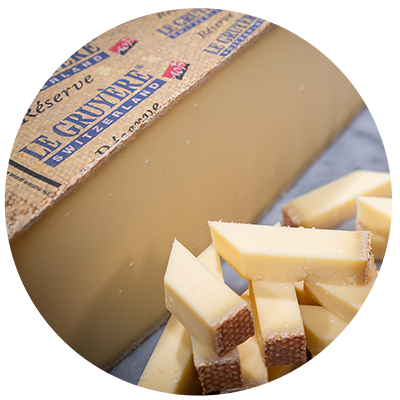- Country or region
- New Zealand
- Trade topics
- Negotiations and agreements
Eliminating import duties on all EU agri-food exports to New Zealand
Thanks to the EU-New Zealand Free Trade Agreement (‘FTA’), EU farmers and agribusinesses will have easier access to the New Zealand market and more opportunities to sell their products. All import tariffs on EU agri-food exports will be fully eliminated from day one of entry into force of the FTA.
Tariffs will go down to zero on all products, including for key EU export products, such as:
- Pigmeat
- Wine and sparkling wine
- Pet food
- Chocolate, sugar confectionary and ice cream
- Dairy products, including cheeses
Protecting Geographical Indications (GIs)
Under the FTA, New Zealand will protect the full list of EU wine and spirit GIs (over 2,000 EU GIs), such as Prosecco, Polish Vodka, Rioja, Champagne and Tokaji.
In addition, New Zealand has agreed, for the first time, to protect GIs other than wines and spirits and will protect 163 of the most renowned EU food GIs, such as Asiago, Comté or Queso Manchego, Istarski pršut, Lübecker Marzipan, and Elia Kalamatas. EU beverages such as České pivo and Bayerisches Bier will also be protected in New Zealand.
It will be possible to continue using the name of some EU GIs in New Zealand, whilst the use of some others will be phased out over a period of five or nine years. Prior users will retain the ability to use the terms ‘Gruyère’ and ‘Parmesan’, while new producers will be prevented from using those terms.
The FTA, which also protects 23 wine GIs from New Zealand, foresees the opportunity to protect more GIs in the future.
The protection of a name as a GI makes it illegal to use the name for imitations in New Zealand. This means that the use of a GI term for non-genuine GI products will be prohibited and expressions such as ‘kind’, ‘type’, ‘style’, ‘imitation’ or the like will not be allowed. Protection extends to the misleading use of imagery that suggests a 'false' geographical origin.

The recognition and protection of EU GIs through the FTA will provide real benefits to European farmers, producers and exporters by helping them market their distinctive regional products in New Zealand. New Zealand consumers will in turn benefit from the reassurance that they are buying a genuine quality EU product.
Find GIs registered in New Zealand
EU GIs protected in New Zealand under the FTA will be added to the New Zealand GI register by the entry into force of the FTA.
EU register of GIs – eAmbrosia
New Zealand GIs to be protected in the EU under the FTA will be added to the database once the FTA enters into force.
Reducing burden of Sanitary and Phytosanitary measures
The FTA chapter on Sanitary and Phytosanitary (SPS) measures builds upon the WTO Agreement on the Application of Sanitary and Phytosanitary Measures and deals with all SPS issues not covered by the EU-New Zealand Sanitary Agreement on trade in live animals and animal products.
The SPS Chapter defines streamlined procedures on the exchange of regulated pests for plant products and the recognition of pest-free areas. Rules leading to the equivalence of each others’ SPS measures are defined. The definition of the import requirements for priority plant products are to be treated in an accelerated manner.
New ambitious rules on anti-microbial resistance commit the EU and New Zealand to cooperating in international forums on the development of future standards and initiatives, including on responsible and prudent use.
Moreover, the EU and New Zealand will ensure that imports are not prohibited or prevented where an SPS measure is under review.
Promoting sustainable food systems and animal welfare
The EU-New Zealand FTA has dedicated chapters on Sustainable Food Systems and Animal Welfare.
Under the FTA, the EU and New Zealand have:
- affirmed that their respective welfare standards and associated systems provide comparable animal welfare outcomes, despite substantive differences in their farming practices.
- agreed to cooperate more closely to develop and implement scientifically-based animal welfare standards, including in relation to the treatment of animals on farm, during transport and at slaughter.
- agreed to cooperate on food loss and waste, pesticides and fertilisers, and ensuring the security and resilience of food supply chains.
- committed to take initiatives to phase out the use of antimicrobial agents as growth promoters and to reduce the use of antimicrobial agents in animal production.

Refer to the EU SME Guide for more information on the benefits of the EU-New Zealand FTA and guidance on doing business in New Zealand.

